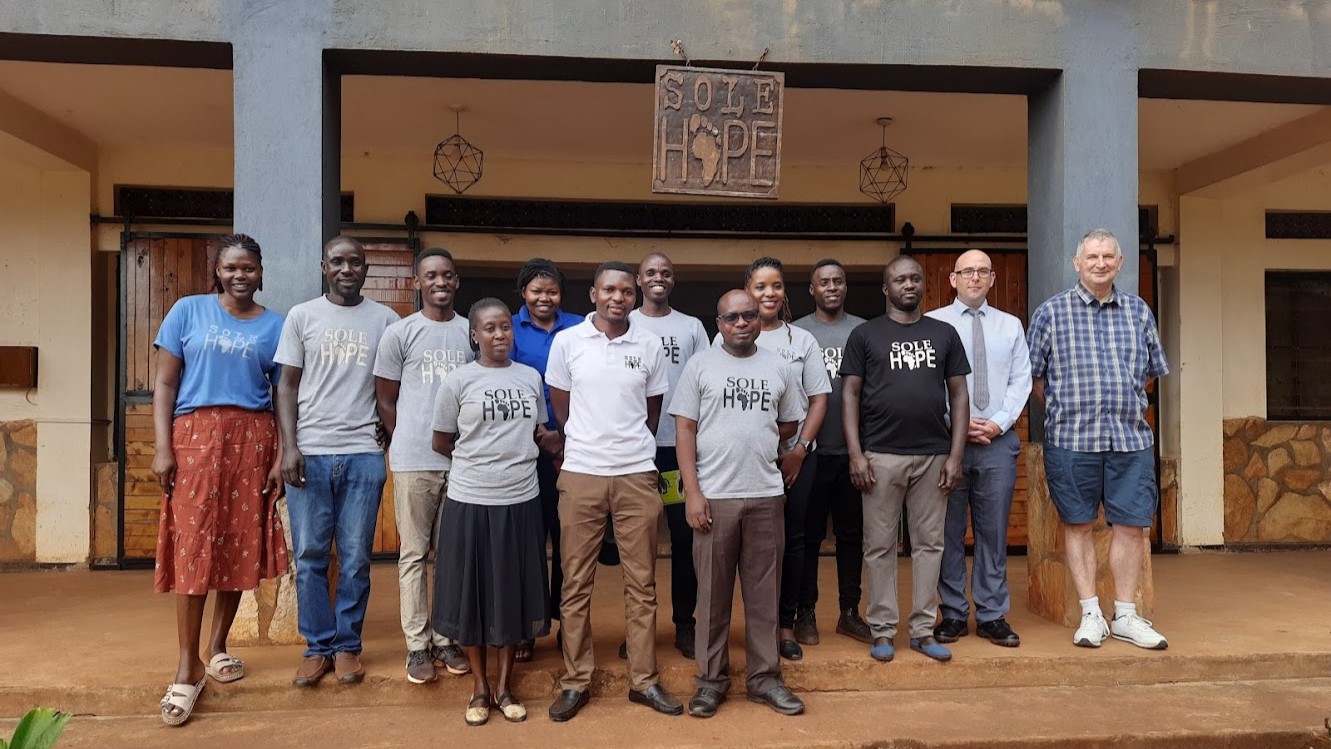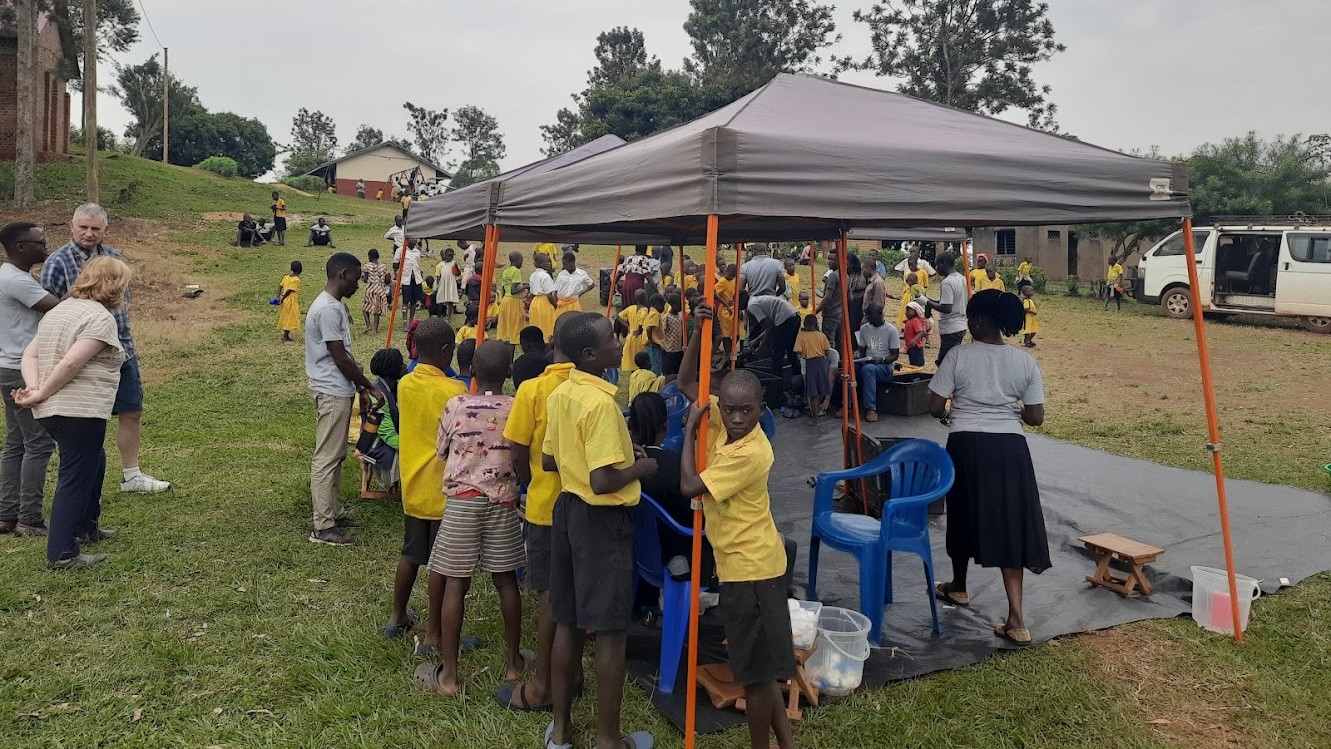Podiatry team visit Uganda to help foot health charity

Academics from the University of Huddersfield have travelled to Uganda to help a charity in its drive to reduce the suffering caused by a debilitating foot condition.
Thousands of Ugandan children and adults are affected by Tungiasis, a painful parasitic skin disease known widely as Jiggers or sand fleas. The fleas thrive in the unsealed earth floors of many houses in Uganda where children and adults often go barefoot. The female Tunga (sand flea) burrows into the skin and lays its eggs which then hatch into larvae. The larvae and subsequent adult fleas develop within the skin causing painful wounds that can cause serious infections if not removed.
Dr Peter Roberts, Senior Lecturer in Podiatry and Dr John Stephenson, Reader in Biomedical Statistics visited the charity Sole Hope in August 2025. Sole Hope is a charity based in the east African country that not only offers treatment and education, but also manufactures and provides shoes made from recycled tyres.
Huddersfield's help will expand charity's work
Sole Hope looked to the university to help them with gaining for funds for research and to expand their work. John and Peter’s visit to Uganda has yielded collaborative research opportunities with Makerere University in the capital Kampala as well as with the charity.
“The Uganda branch of Sole Hope contacted our colleague Dr Beth Gulliksen from the advanced clinical practice course, and since Tungiasis particularly affects the feet she sought input from the podiatry team,” Dr Roberts explains. “They were looking for some help with data and research, to give them a means of expanding what they do. They were particularly interested in prevalence of the condition, and data to show that what they do is effective, and that that it should be supported.”
Dr Roberts and Dr Stephenson visited the cities of Entebbe, Jinja and the capital Kampala, but the most revealing part of the 10 days in Uganda was a visit to a school in a small village outside Jinja.
“Sole Hope took us with them to a school where they provided education on Tungiasis and jiggers for 250 children,” Dr Roberts adds. “It was really vibrant, the children were totally engaged with the educational songs and dances.
"The Sole Hope team assessed and treated the feet of all these kids removing a total of 161 Jiggers during the visit. And after treatment, they gave every child a pair of shoes made from recycled denim and car tyres. Most go barefoot and live in houses with earth floors, where it is easy to be bitten by the jiggers, so the shoes will be a big help.

“We saw them removing the Jiggers with razor blades or sterile safety pins, then applying antiseptic to prevent secondary infections. The lack of funding and restrictions on the availability of medications mean that the team are limited in what they can do, beyond physical removal. Topical treatments such as Dimeticone have shown some success and are painless to apply but are not widely available for use.
"The charity keeps a small quantity to use with children who are in a lot of pain, but more funding would mean that Sole Hope could use this drug more and avoid some of the pain experienced during traditional removal.
Allaying myths around Tungiasis
"Another damaging aspect of Tungiasis are the myths around it. There is a stigma about it that people have the condition because they are unclean or cursed. There are some really damaging beliefs, but the Sole Hope team are trying to address these barriers with their education and #zerojiggers slogan.”
The visit also saw the university’s team discuss next steps that could help Sole Hope with both the charity and Makerere University.
Visit builds relationships
“John and I have proposed a realistic, workable study that would give Sole Hope the data they require. We want to give them data that would really help to improve their position as a charity and help with the provision of these very valuable treatments.”
“The visit has established some excellent working relationships, which is just what we wanted, and now we are working collaboratively with staff from Makerere University, the University of York, Sole Hope and affiliate podiatry researcher Dr Michael Concannon in writing a bid for substantial funding to support the research.”
"Our Associate Dean for International, Professor Padam Simkhada, was very supportive of the trip in terms of it being something that's impactful in real world terms and with the potential to make a big difference globally. This is this is a very under-explored tropical disease, but it is a devastating condition. We have a great opportunity to do some very positive work.”